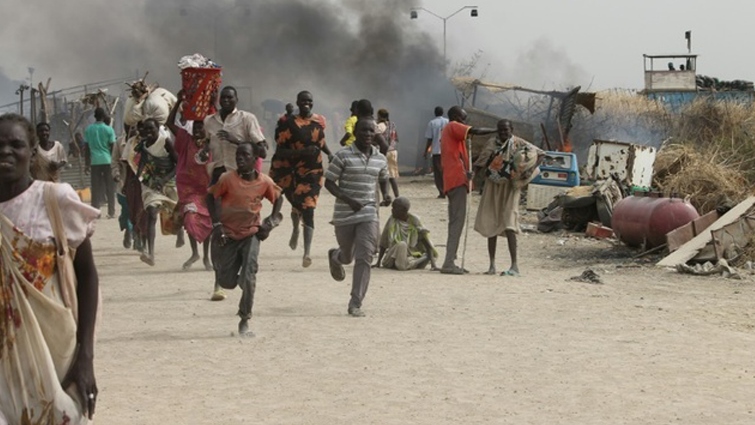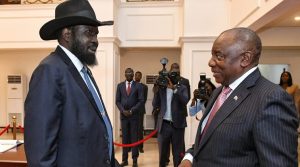Senior UN officials have warned that there are legitimate questions and concerns about the commitment of the parties to peace agreement signed by the leaders of South Sudan less than a week ago.
A previous deal signed in 2015 fell apart and fighting between government forces and rebels have killed at least 50 000 people and displaced 2 million.
The UN’s Under Secretary General for Peacekeeping pointed out that within days of the latest signing in Ethiopia’s capital, there have already been reports of fighting in several regions of the country.
Despite the handshake between President Salva Kirr and his opponent Riek Machar in Addis Ababa last week and the opportunity it presents, hostilities continue in several states in South Sudan.
Secretary General for Peacekeeping Jean-Pierre Lacroix says: “We must send a strong message to the parties that with the conclusion of this revitalized political agreement, there is no justification for this continuation of violence, which continues to exact a heavy toll on the civilian population. We must once more call upon them to demonstrate leadership by taking the necessary steps to silence the guns, disengage forces, facilitate the free and unhindered movement of UNMISS and humanitarian partners and reverse the massive humanitarian and human toll of the conflict.”
While the energetic diplomacy of IGAD and other regional groups and countries including Ethiopia, Uganda and Sudan have been lauded in achieving the latest agreement, the parties still need to demonstrate political will to implement it.
UN envoy for Sudan and South Sudan, South Africa’s Nicholas Haysom says: “We have also alerted the parties to the need to address the enforceability of the agreement. We have already noted the numerous cessation of hostility agreement that have been violated within hours of the parties recommitting to peace. No agreement can last in the face of continuing violations for which there is no penalty or no consequence. This risks a response by South Sudanese as to what is different in this agreement from the previous failed agreements.”
“One of the hurdles facing implementation of the agreement is the low-levels of trust between the parties. The prevalent spirit of rivalry will be imported into the government by virtue of the fact that the parties and their leaders will likely be competing candidates at the election which is the culmination of the transition.
“This Council should urge the parties to undertake confidence building measures to build faith in the peace process and ameliorate the bitterness and hostilities which is the legacy of the last four years of horrible intercommoned violence. Such measures to not require financial resources. ”
A broad reading of the room was that Council members and UN officials feel a sense of ‘been there done that’ – given the number of peace and cessation of hostility agreements that have failed to quell the violent trajectory of the world’s youngest nation.
As Nicholas Haysom pointed out, the jury is still out on whether the issues that threaten a lasting and sustainable peace in South Sudan – among them security arrangements, cantonment of fighters and finances among others – will be resolved through the parties and their leaders showing and sharing a real commitment to this new peace process.






